
How Going Gluten-Free Transformed our Home
Hi, I’m Melissa, Beth asked me to explain how going gluten-free made a difference in our household. I have a
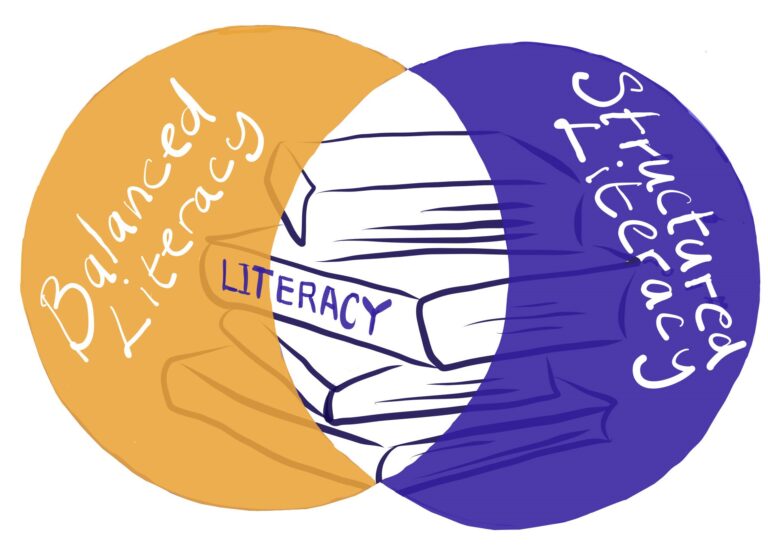
Thankfully, the Ministry of Education has now abandoned the balanced literacy approach. I’d love to do a little celebratory dance, but my heart still breaks for all the kids the balanced method failed. I know Harry would never have learned to read had I not had the time and resources to teach him.
According to a great blog post by themeasuredmom.com (it’s a long piece but well worth reading), balanced literacy looks like this:
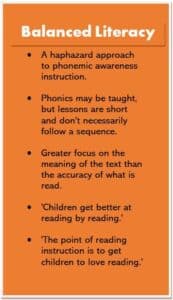
For children like Harry, balanced literacy does not teach them how to crack the reading code because they need a carefully structured approach to phonics.
Again, taken from the measured mom blog post, this is what structured literacy looks like:
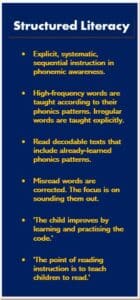
The Ministry of Education announced at the end of August 2022 that primary schools in New Zealand will now follow the structured literacy approach. Hallelujah! It turns out I was correct to teach Harry using structured literacy materials I tracked down online.
I chose not to home-school Harry. Instead, we got up 30 minutes earlier every weekday and worked through All About Learning’s material. I am not a teacher, but each lesson was easy to follow, and most importantly, I went at Harry’s pace. We didn’t start a new topic until he had mastered the previous one, and I used lots of repetition to reinforce his learning. Yes, it took a few years to work through the levels, but now Harry can read and spell. Check out this blog post for more about what we did.
Even though New Zealand schools are now taking this structured literacy approach, one-on-one instruction at home can boost your child’s learning as children with dyslexia must review concepts multiple times before they can remember them. But don’t just take my word for it. The following is a case study from another mother who used All About Learning structured literacy resources with her son.
(abridged from All About Learning Press)
“My son is the kindest and most honest and selfless child I know. He has taught me more about this world than I could have ever taught him. Yet, with all these amazing qualities, he never excelled in school. From the very first day, school was a nightmare. He absolutely dreaded going and would cry and beg not to go. He struggled in all his subjects, but mainly reading and spelling.
His learning diminished. He lost all motivation for learning and doubted his ability to do anything. Any time spelling or reading was presented to him. It became a battle of wills. He would instantly shut down, and it would become a power struggle even to get him to write his spelling words, let alone try to read them. Of course, all of this left my son with low self-esteem.
…From reading and spelling intervention classes, special needs classes, misdiagnoses, and even being told that my child had reached his learning potential at the age of 10—we faced so many trials. As his parent, I was angry, confused, and heartbroken. I knew he had more in him. I knew he could learn, but at the same time, I also knew something was wrong. He didn’t read like other kids his age. That’s when I decided to home-school.
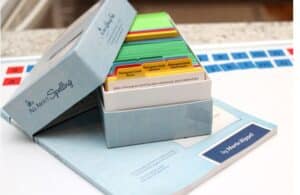
I tried a few spelling programs and found that most shared the same approach—repetitively writing the words or building word pyramids. These approaches did not work for us, and I was not impressed. After my son was diagnosed with dyslexia, I began to learn more about dyslexia and how the brain of a dyslexic person interprets information. All the horrible years at school began to make perfect sense. I started searching for a curriculum that worked for dyslexic children. That’s when I found All About Spelling. When I opened the teacher’s manual, there were no repetitive lists, no pyramids. The layout was easy. It was structured but flexible. All I had to do was follow the steps.
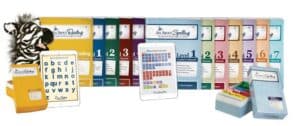
Now we have been avid AAS users for three years, and the progress my son has made is indescribable. For him, spelling is a complex process. But AAS gives him the tools he needs to succeed.
The AAS phonograms app taught him to recognize the correct sounds of letters. Letter tiles gave him physical letters to refer to. He didn’t have to rely on straight memory, and he could focus on one letter and one sound at a time. The Key Cards are like a “safe base” for him. They make the spelling rules simple and easy to remember.
I don’t know that I can truly convey all the things AAS has done for our family. But I can convey the joy I feel when I see my son learning—when he spells a word on the board, jumbles up the letters, and then stops himself and says, “Wait, Mom.” I can hear him whispering and repeating one of the memorized key cards to himself. Then he self-corrects the misspelled word. No frustration, no overwhelmed feeling, just confidence. That feeling is priceless.
All About Spelling not only helped my son learn to spell, it gave him confidence in himself again—confidence that he had lost so many years before. It gave him the reassurance that with the right approach, he could spell and read. To have witnessed the change in him leaves me in awe.”
I am delighted that New Zealand primary schools will now teach structured literacy, and I know my son’s primary school has already switched. Sadly, for many children, it is too late. I hope they get the necessary literacy help before they lose all self-belief. In my book, Dyslexia. Wrestling with an Octopus, I mention that the percentage of prison inmates with dyslexia may be as high as 57%. Once locked out of literacy, people struggle to get into employment, and a life of crime may appear to be their only option.
Speechify is an app that can help dyslexic children as it reads online text. Here is my affiliate link.
Here are some useful websites which explain structured literacy:

Hi, I’m Beth. Seven years ago, when I discovered my son had dyslexia, I had a ‘light-bulb’ moment and understood this explained many of my own difficulties. Ever since, I’ve been on a mission to discover the best ways to wrestle what I like to call the dyslexia octopus.

Hi, I’m Melissa, Beth asked me to explain how going gluten-free made a difference in our household. I have a

It’s 4 AM and I’m going over what happened to Harry at school yesterday, wondering how best to help. My
2 Responses
Yes, l was told this by a Kip McGrath teacher. I was at loss too. I have two children with the condition. We used Speld and home tutoring with our youngest and Kip McGrath and Speld with our oldest. One Principal said to me, “You don’t want to label your child.” I only wanted to get them the right help. It really was like banging your head in the wall and getting nowhere. It left me very frustrated and angry about how the school system worked. I sent an email to Lorraine Offord but sadly she never replied. Yes, l felt like you and knew that after talking to the RTLB lady my son was capable of more and would get there if he had the right help. Next year he starts high school and I do hope structured literacy goes into the high schools as well. We have spent a small fortune on our boys with extra tuition for them both and getting them tested so they had the best start at school and high school. It certainly isn’t easy. I found a smaller school give them more teacher time but they were still behind compared to other children.
Thank you for your comment. It is so tricky navigating the school system. Well done for persevering and getting them extra help. You will never regret your investment, but I agree it shouldn’t be down to parents to have to spend a fortune. I am horrified by the Principal’s comment about labelling. What century are they living in?